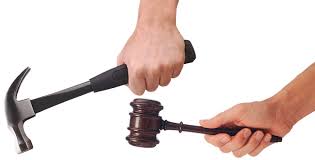WELCOME TO LEGAL HELP LAW
You are welcome once, your own website, today we will talk about section 11 of the Indian evidence Act. What is it? It gives citizens rights to cones.
What is section 11 of evidence act. -
11. When facts not otherwise relevant become relevant.– Facts not otherwise relevant are relevant ––
(1) if they are inconsistent with any fact in issue or relevant fact;
(2) if by themselves or in connection with other facts they make the existence or non-existence of any fact in issue or relevant fact highly probable or improbable.
Illustrations
(a) The question is, whether A committed a crime at Calcutta on a certain day.
The fact that, on that day, A was at Lahore is relevant.
The fact that, near the time when the crime was committed, A was at a distance from the place where it was committed, which would render it highly improbable, though not impossible, that he committed it, is relevant.
(b) The question is, whether A committed a crime. The circumstances are such that the crime must have been committed either by A, B, C or D. Every fact which shows that the crime could have been committed by no one else, and that it was not committed by either B, C or D, is relevant.
EXPLANATION -
11. When facts not otherwise (clearly connected or related) become (clearly connected or related).- Facts not otherwise (clearly connected or related) are (clearly connected or related) --
(1) if they are not agreeing with/not matching with any fact in issue or (clearly connected or related) fact;
(2) if by themselves or in connection with other facts they make the existence or non-existence of any fact in issue or (clearly connected or related) fact highly probable or unlikely.
Drawings/pictures
(a) The question is, whether A did/done/performed a crime at Calcutta on a certain day.
The fact that, on that day, A was at Lahore is (clearly connected or related).
The fact that, near the time when the crime was committed, A was at a distance from the place where it was committed, which would make/give it highly unlikely, though not impossible, that he committed it, is (clearly connected or related).
(b) The question is, whether A did/done/performed a crime. The facts or conditions (that surround someone) are such that the crime must have been committed either by A, B, C or D. Every fact which shows that the crime could have been committed by no one else, and that it was not committed by either B, C or D, is (clearly connected or related).





0 Comments